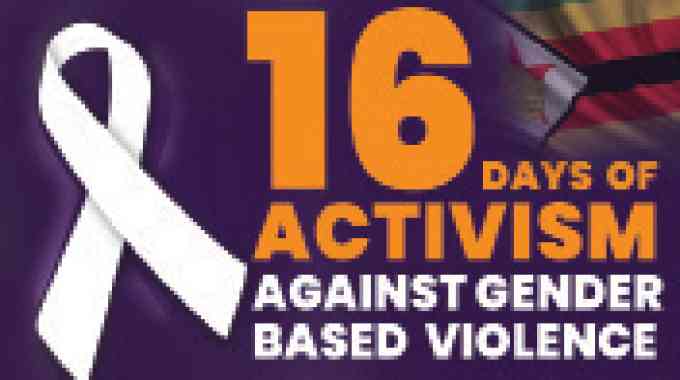
THE Women Affairs, Community, Small and Medium Enterprises Development ministry on Thursday officially declared the set off of the Mpilo Central Hospital One-Stop Centre (OSC), one of the 17 nationally, multi-sectoral models meant to respond to the needs of gender-based violence survivors.
This was in partnership with the embassy of Japan, United Nations (UN), the United Nations Population Fund (UNPFA) and Family Support Trust.
Driven by the disturbing statistics from Matabeleland's regional courts, which show that about 66 rape cases are recorded from different areas monthly, while, at least three rape cases make a weekly record in Bulawayo alone, the model emerged to serve victims in the region.
The model launch amplifies the 16 days of activism against gender-based violence campaign under the theme Towards 30 years of the Beijing Declaration and Platform for Action: UNITE to End Violence Against Women and Girls.
Speaking during the official launch at Mpilo Central Hospital car park, Women Affairs, Community, Small and Medium Enterprises Development minister Monica Mutsvangwa said GBV continues to wrestle the country, thereby being the major obstacle towards the development of communities.
“GBV is one of the challenges that the country is currently grappling with and it constitutes a serious violation of fundamental human rights and a major obstacle to the social and economic development of communities, posing severe negative consequences on the health and social well-being of the survivor,” Mutsvangwa said.
“Over the years, Zimbabwe has experienced significant increases in the levels of GBV, and the survivors continue to suffer in silence, primarily due to the fear of victimisation and the potential for secondary abuse.”
She said the OSC model is meant to bridge those barriers and strengthen the GBV referral system, by ensuring that survivors access holistic and specialised services such as health, psychosocial support, legal and police services under one roof, at no cost, while in a confidential and friendly environment that empowers victims to break their silence.
- Making every day that of activism against GBV
- 16 days not enough, says Ruvheneko
- Churches best positioned to deal with GBV
- The style interview: Tozeza Baba addresses gender-based violence
Keep Reading
Standing in for Bulawayo Metropolitan Affairs and Devolution minister Judith Ncube, provincial director for economic development Simon Saunyama rode on the sentiments, urging the city’s residents to develop a culture of reporting abuse to improve the rate of reported cases of GBV.
“The opening of this OSC will improve the rate of reported cases of GBV, enhance justice and help survivors access legal, medical and counselling services.
“GBV survivors will also enjoy privacy as they no longer need to move from one service provider to another, thereby exposing themselves to further risk of abuse and harm,” Ncube said.
“I want to urge the residents of Bulawayo to develop a culture of reporting abuse so that the perpetrators are dealt with by the law.
“This is the only way to make sure we keep our women and girls safe from violence, usually perpetrated by close relatives and neighbours.”
Meanwhile, since the beginning of the UNFPA Zimbabwe 8th Country Programme in 2022, jointly with the Women Affairs ministry, more than 150 000 GBV survivors, and almost 24 000 women and girls in hard-to-reach areas accessed at least one essential service through the OSCs and Shelter, with psychosocial support, health services, police and legal support included.








